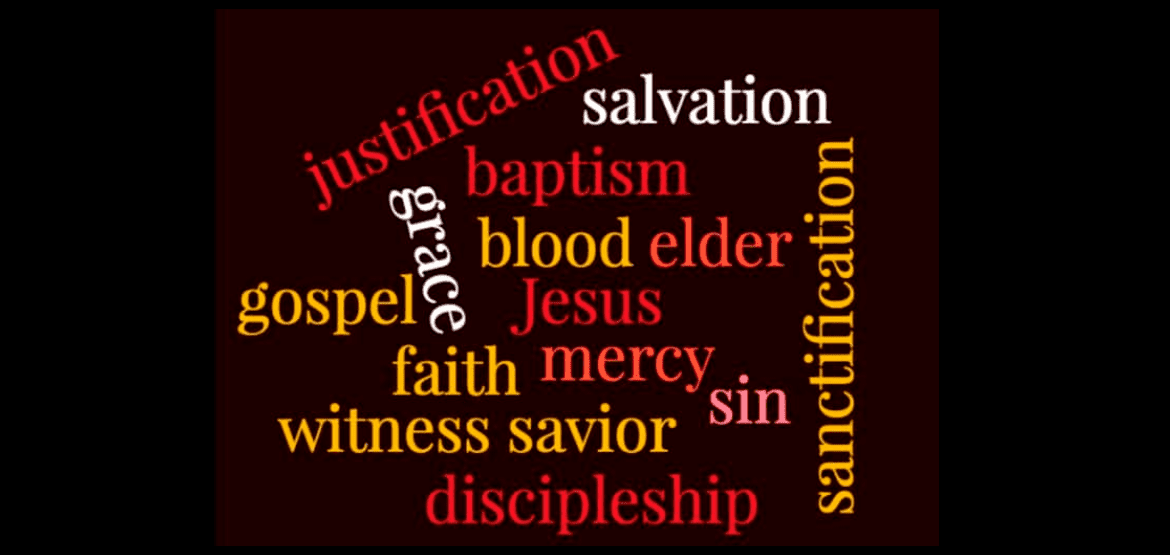The language of the Liturgy is the Word of God. We literally sing and speak Scripture from beginning to end -- if not in direct quote then in paraphrase. The center of this Word is God -- not simply God but the God who has disclosed Himself to us through His Word spoken in many ways and many times by the prophets until that Word became flesh in Christ. We are relatively accustomed to speaking in this way but the sad reality is that outside the Church even the word "God" is more vulgarity, curse, or swear than anything else. While in the church we are always asking God to be come to us and remain with us, in the world God is often seen as a rude voyeur who is where He has not been invited and who judges a people who resent His judgement. God is not simply on the fringes of our conversation within the church but the very content and goal of that conversation. It is God talk in the most literal sense of that term.
We could go on with the multiplicity of words used primarily in church and perhaps even exclusively there -- from sin to repentance to absolution to baptism to Eucharist and even preaching. We are not simply talking about the odd words (propitiation and expiation, to name two) but the very language of worship. At some point we began to think of these words as barriers to the communication of the content and began literally dumbing down the conversation, excising the unique words of Scripture and the faith from our witness. Strange this is for a church that began its life by literally changing the language and vocabulary of the people to accommodate the voice of Scripture. We transformed the world first by teaching the world a new language. For most of Christian history, the church was in charge of the vocabulary. Read through Shakespeare, for example, and you see how thoroughly embedded into language and culture was the voice of Scripture. Even in literature and plays the language persisted and the world surrendered to the vocabulary of the church.
Part of our problem today is surely that we have surrendered the vocabulary to others and the world has not simply forgotten the Christian language that once permeated its own conversation, it has rejected it and disowned it. Perhaps this Christian language achieved its zenith in the predominance of Latin but it was not exclusively so. All during the era following the Protestant Reformation, language was still pretty much to domain of the faith and the faithful. Not so anymore. We are behind the curve with such things as gender and marriage and family largely because the very vocabulary has been wrested from the church and endowed with alien understandings and concepts that make words mean today what they did not mean before. It is more than the evolution of language but the rejection of every aspect of our Christian past. Surely for us to begin the process of reclaiming the culture we must also reclaim the very language and vocabulary! It has to begin with the church. No more can we afford to use worldly terminology to define what is essentially taught in Scripture and Christian. For the real outcome has not simply been the surrender of the language to the culture but the adoption of what culture defines as the word that is spoken in the church as well. The surrender of the language is the surrender of its content as well.

No comments:
Post a Comment